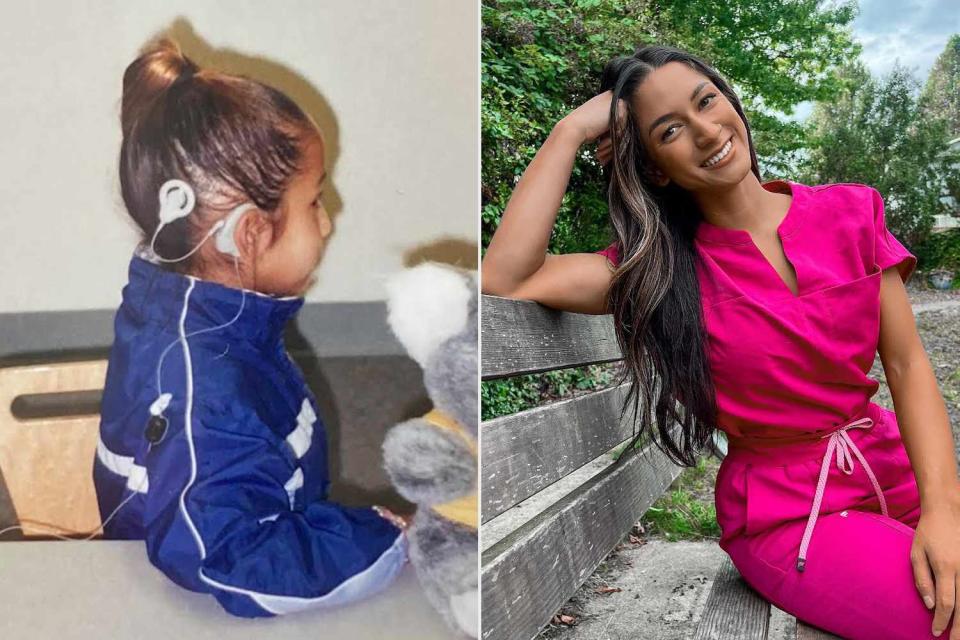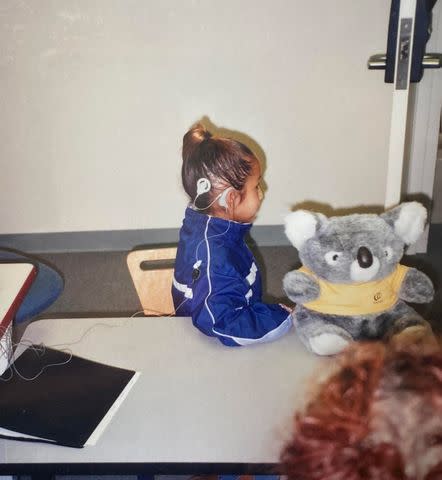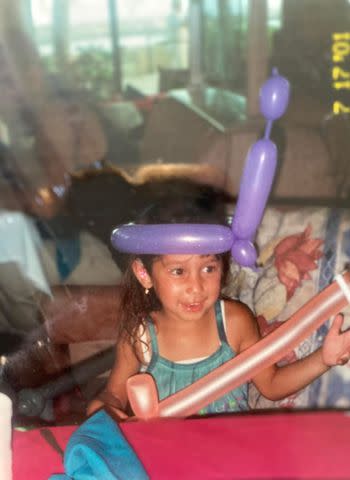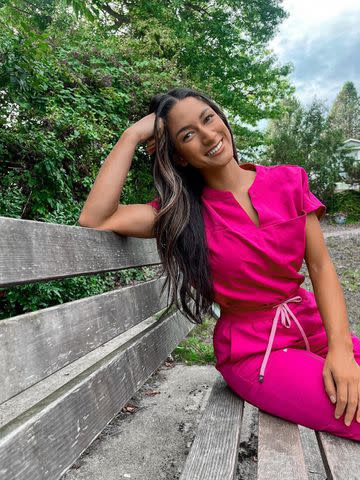Girl Loses Hearing as Baby, Told She'd Never Work in Healthcare. Now, She's a Nurse: 'Only the Beginning' (Exclusive)
Mikaela Thepvongsa began losing her hearing at 1 year old

N. Thepvongsa, B. Thompson
Mikaela Thepvongsa purses dream of becoming a deaf nurse.Mikaela Thepvongsa was born healthy and hearing, much like everyone else in her family.
As a child, she responded to sounds around her and even tried to imitate them herself. Then, around the age of 1, Mikaela's parents noticed a sudden change.
"I couldn’t stand up, I would fall and wouldn’t cry. My parents would try to tickle me, and I didn’t react anymore," Mikaela, who resides in Seattle, Washington, tells PEOPLE exclusively.
Mikaela, now 27, says her parents raised concerns with doctors, only to be repeatedly dismissed and told it might be a behavioral issue rather than a medical problem. Undeterred, Mikaela's mother took action, writing a comprehensive letter detailing all her daughter's symptoms: her cessation of reactions to stimuli, including sounds and touch.
She expressed deep concern about her daughter's deteriorating condition, distributing the letter to multiple doctor's offices in their area. Out of all those contacted, only one nurse responded.
"This nurse called my mom and indicated she thought she could help, which led to me getting an MRI," Mikaela explains.
"The MRI revealed that I had prominent white matter lesions scattered throughout both hemispheres of my brain," she adds. "This was extremely rare for someone at my age."

N. Thepvongsa
Mikaela Thepvongsa with a hearing device.Following the MRI, Mikaela was diagnosed with bilateral sensorineural profound hearing loss, a condition affecting the inner ear's functionality, as described by the Mayo Clinic.
Shortly thereafter, sometime between the ages of 2 and 3, she lost all her hearing, becoming deaf in both ears.
"Living with bilateral profound hearing loss and other chronic illnesses and disabilities, I've faced numerous challenges in my life," Mikaela says.
"This includes spending extensive time in hospitals and undergoing various therapies — physical therapy, speech therapy, occupational therapy," she adds.

N. Thepvongsa
Mikaela Thepvongsa wearing hearing aids.Growing up with chronic illnesses from a young age, Mikaela recognized the pressing need for accessibility and inclusivity for individuals with disabilities.
Motivated by her experiences, after earning her bachelor's degree in psychology from Washington State University Pullman, Mikaela pursued nursing at Washington State University, College of Nursing.
But the road to becoming a nurse hasn't been an easy journey for Mikaela, as she shares in a viral TikTok video with over 1 million views. In the video, she explains how during her first clinical rotation, an instructor doubted her ability to become a nurse.
"I was going through a tough time and wanted an outlet to share my personal experiences," she says. "I also wanted to practice speaking in front of the camera, which had been a major insecurity of mine up until that point."
Despite her obstacles, Mikaela successfully completed the semester and graduated from nursing school with honors in 2019.
Her first job after school was in the Intensive Care Unit (ICU) as a New Grad Registered Nurse. Mikaela worked there for over a year, also taking on a per diem Home Health nursing role six months into her ICU tenure.
Mikaela has since transitioned to community health nursing, where she works with patients with disabilities and non-native English speakers. When communicating with her patients, Mikaela opts not to use interpreters.
"Many of my patients mouth their needs, and since I can lip-read, this skill has been tremendously helpful," she explains.
"I know sign language, but since most of my patients are not deaf or do not know sign language, it hasn't been as useful," she says. "In my current role, where I work with deaf patients, my personal experience allows me to relate to them."

B. Thompson
Mikaela Thepvongsa wearing scrubs.Mikaela hopes that by sharing her story online she can inspire others, both deaf and hard-of-hearing, to feel proud of who they are and encouraged to follow their dreams.
"I will always be deaf, which means I'll always face additional obstacles and barriers throughout my life," she says.
"This means I will always have to advocate for myself, have to frequently educate others on deaf and disability awareness and must stay up-to-date regarding what kind of assistive technology is available."
"I am proud of myself for following my dreams, despite how difficult it was to get to achieve my accomplishments," she continues. "This was not the end, but only the beginning."
For more People news, make sure to sign up for our newsletter!
Read the original article on People.


